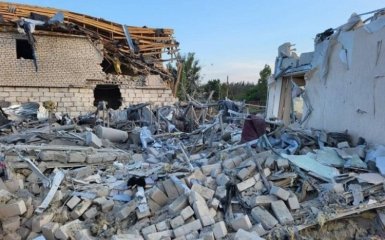On September 16, the Russian occupiers shelled a village in the Kupyan district of the Kharkiv region, and there are casualties.
Points of attention
- Russian army shelled a village in the Kupyan district of Kharkiv region, causing casualties and property damage.
- Three individuals, including a 77-year-old man and two women, were injured in the attack on the village of Petropavlivka.
- Ukrainian authorities have initiated criminal proceedings against the Russian troops for violating laws and customs of war in the Kupyan district.
Russia attacked a village in the Kharkiv region
On September 16, around 10:30 a.m., the Russian military shelled the village of Petropavlivka, Kupyan district.
As a result of an enemy attack, the house burned down. A 77-year-old man and two women aged 76 and 50 received explosive injuries.
The investigative and operative group of the Kupyan district police department, forensic experts and explosives technicians are working at the scene of the incident.
On the fact of violation of the laws and customs of war, the investigators opened criminal proceedings under Part 1 of Art. 438 of the Criminal Code of Ukraine.
In Kupyansk, 21 people were injured by a Russian airstrike
The number of people injured as a result of an airstrike by Russian troops on Kupyansk, Kharkiv region, on August 28 has increased to 21 people, including 10 policemen.
21 people, including 10 policemen, were injured as a result of yesterday's airstrike in the city of Kupyansk.
The Russians hit the FAB-500 with the UMPK module in the center of the city. 43 high-rise and private houses, civilian cars were damaged. Official cars were also damaged.



